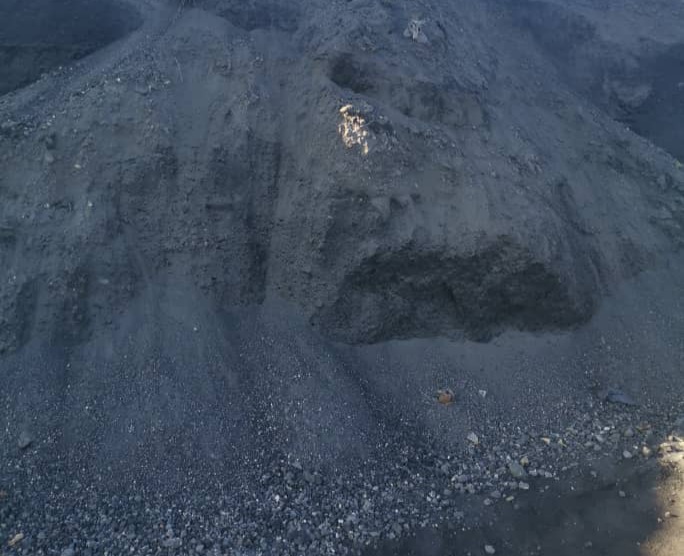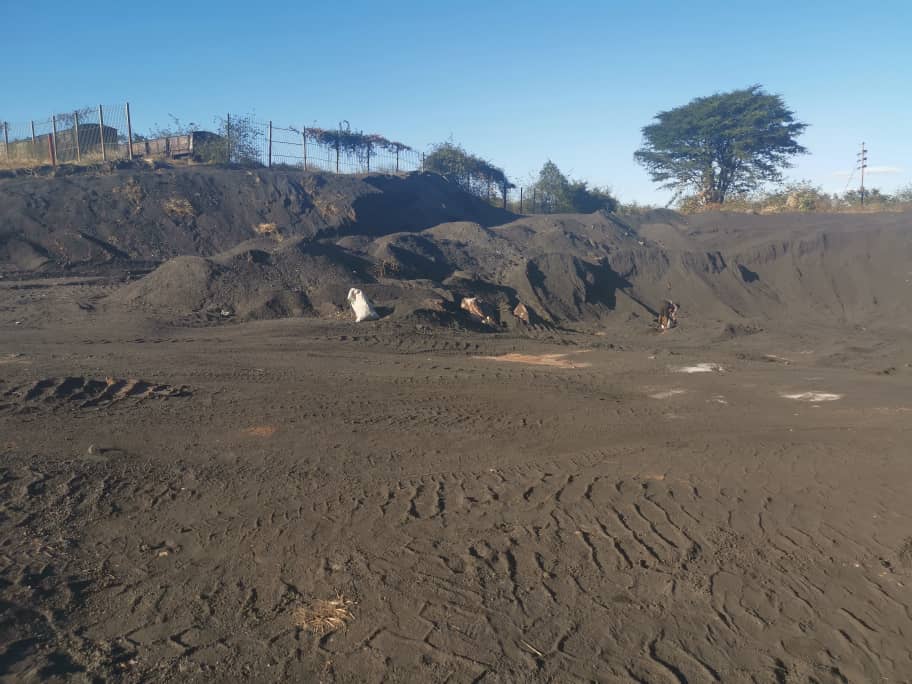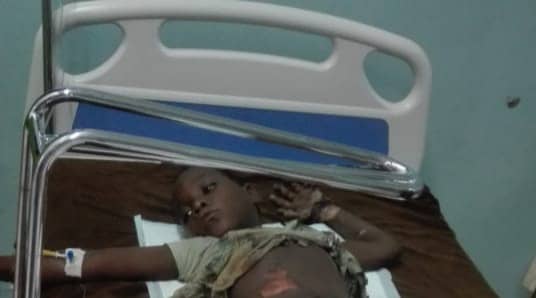BY NOKUTHABA DLAMINI
The family of an eight-year-old Hwange girl, who died on Monday night after she was burnt by underground coal fire nearly a month ago, has described their pain as unbearable and want the Hwange Colliery Company Limited (HCC) to pay for the tragedy.
Alisha Sekina Muzviti, a Grade 2 pupil at Makwika Primary School, died at Mpilo Hospital on Monday in Bulawayo nearly a month after she suffered third degree burns while relieving herself near her Hwange home.
Doctors had amputated her both legs to minimize pain, but she died soon after receiving a blood infusion.
Her father Andy Muzwiti told VicFalsLive that Sekina’s death was a huge blow to the family as they recently lost another child.

“Not even a single word can describe how we as parents and the whole family are feeling right now,” Muzwiti said.
“Her condition appeared to be improving although she was in the Intensive Care Unit.
“She underwent a scan (on Monday) and it showed that her intestines were not badly affected, which gave us some hope that she was going to recover.
“She, however, had been not responding well to the blood transfusion because when they removed the bandage on her hands, the blood started oozing out and hospital staff told us that her veins had burst.
“They said her body was rejecting the blood and I think that is what complicated her chances of survival.
“We were informed at around 9PM that she had passed on, and I have no words to describe the pain because recently we lost another child, who came after Sekina.
“So, we are left with only one child who is nine months old.”
Muzwiti said the family had no money to buy a coffin for their daughter or to take her back to Hwange for burial.
He said he was disappointed by the way HCCL, which owns the dumpsite where Sekina was burnt, handled the case
“My child has had to die and they are not doing anything save for temporary markings that they just began doing to alert people (about the danger posed by the underground fires) after I indicated my plans to sue,” Muzwiti said.
“She was deprived of her chances of growing up like any normal child and even during this difficult time, we are on our own with the community members who helped with medical bills at Mpilo Hospital.
“I am angry because these dumpsites and houses belong to them and there have been cases similar to that my daughter, but nothing has been done.”

Sibangani Dube, a Hwange resident, said something urgent must be done to stop the loss of lives at the dumpsites.
“Just few weeks ago, we lost a university student in these dumpsites and a countless number of residents, especially women have been killed in these dumpsites and another boy has been left permanently disabled after he was burnt in the presence of his mother while they were farming,” Dube said.
“The tales are chilling, but what is disappointing s that when HCCL deplete coal reserves from these areas, they leave their pits unsecured and when methane and oxygen combine, they reignite hot furnaces on surfaces and it is difficult for one to know with a bare eye that the surface is hot or loose and that’s how we have lost many of our community members.”
HCCL corporate affairs manager Beauty Mutombe said Alisha’s death was unfortunate, but she absolved the company of any wrongdoing.
“This was an unfortunate incident and we would like to pass our condolences to the family,” Mutombe said.
“But the fact of the matter on these allegations are that when I went to the scene where this girl died, I established that she had been to a place where ants breed and leave a huge pile of soil.
“They had been playing on those heaps that we suspect they had been sent to collect that soil that is normally eaten by pregnant women because there were plastic bags that they had left there,”
“She was a kilometre away from her place of residency, and we established that she had walked about 500 meters to relieve herself and that’s where she got burnt, but what should be clear is that those areas have been marked and are prohibited for anyone to enter.
“This is the same case with those elderly people, who have died in our dumpsites while looking for coal to make bricks.
“Yes we understand that they are driven by economic hardships, but we keep doing community outreach campaigns showing that those areas are prohibited for anyone without a licence to enter and when we find anyone there, we don’t hesitate to send them to jail.”
Mutombe said HCCL assisted the Muzwiti family even though the company was not obliged to do so.
“We admitted that girl in our hospital, and we even took her to Mpilo with our ambulance which cost $124 000 together with our nursing staff,” she said.
“But we were not mandated to do that because the husband is employed by South Mining company
“So for us it was humanitarian care for them and I even used to take fruits to her while she was still hospitalised to show our love, but if they have gotten advice to sue us, we cannot stop them and we will defend ourselves.”
Meanwhile, Muzwiti has appealed for assistance for her child’s burial. Those who want to assist may use the following Ecocash numbers (078 543 7185) ( 0777 739 5526) for his wife Ethel.

 Slider3 years ago
Slider3 years ago
 National4 years ago
National4 years ago
 Tourism and Environment4 years ago
Tourism and Environment4 years ago
 Special reports4 years ago
Special reports4 years ago
 Opinion4 years ago
Opinion4 years ago
 National4 years ago
National4 years ago
 National3 years ago
National3 years ago
 National3 years ago
National3 years ago





